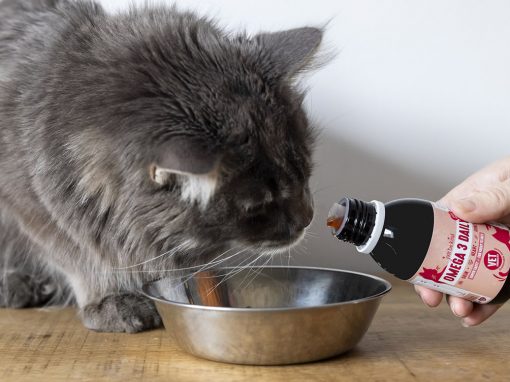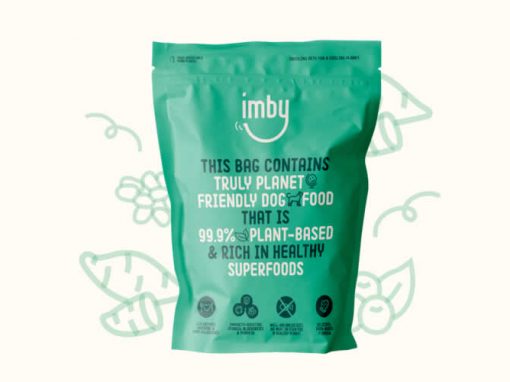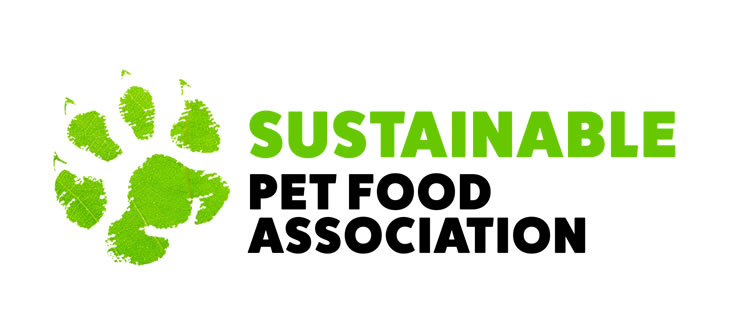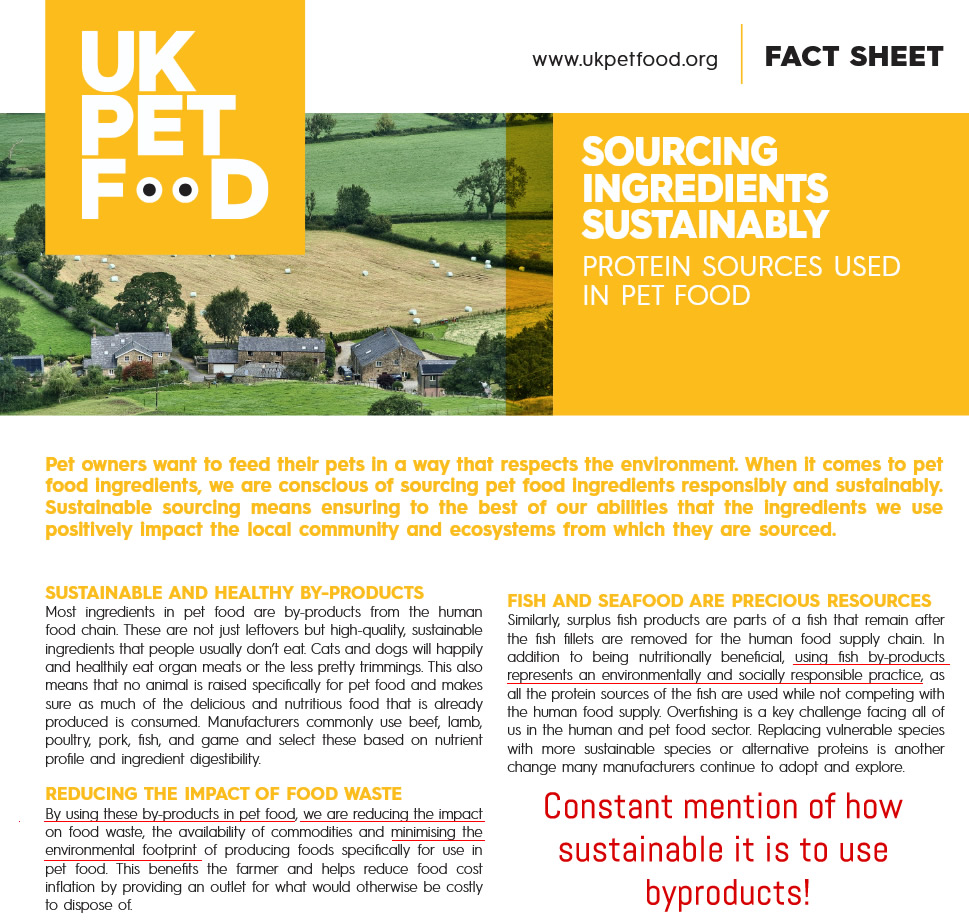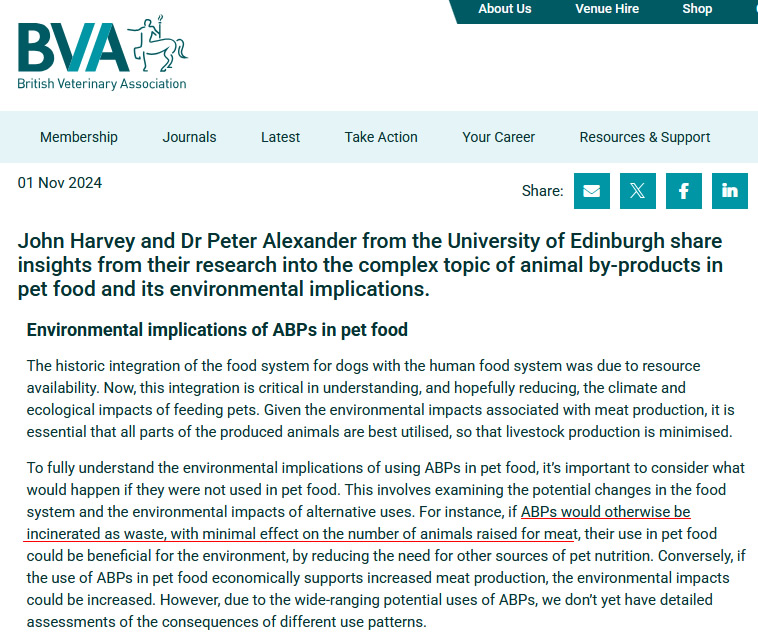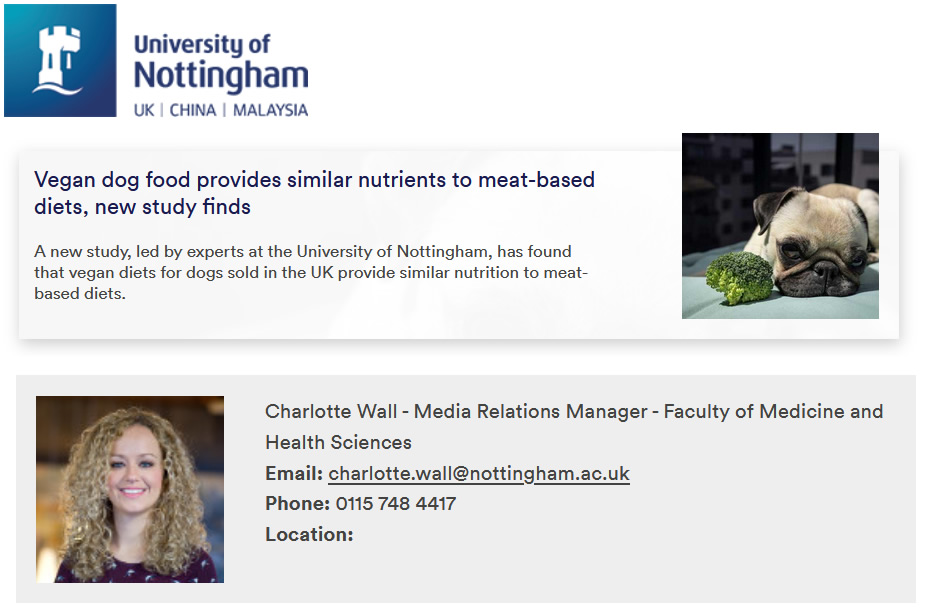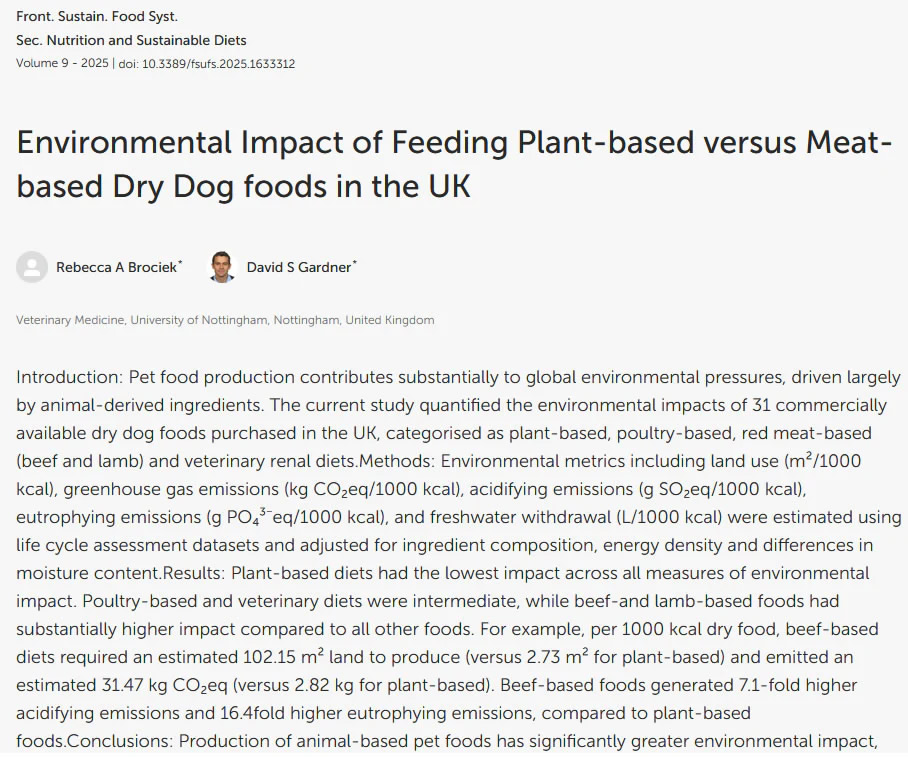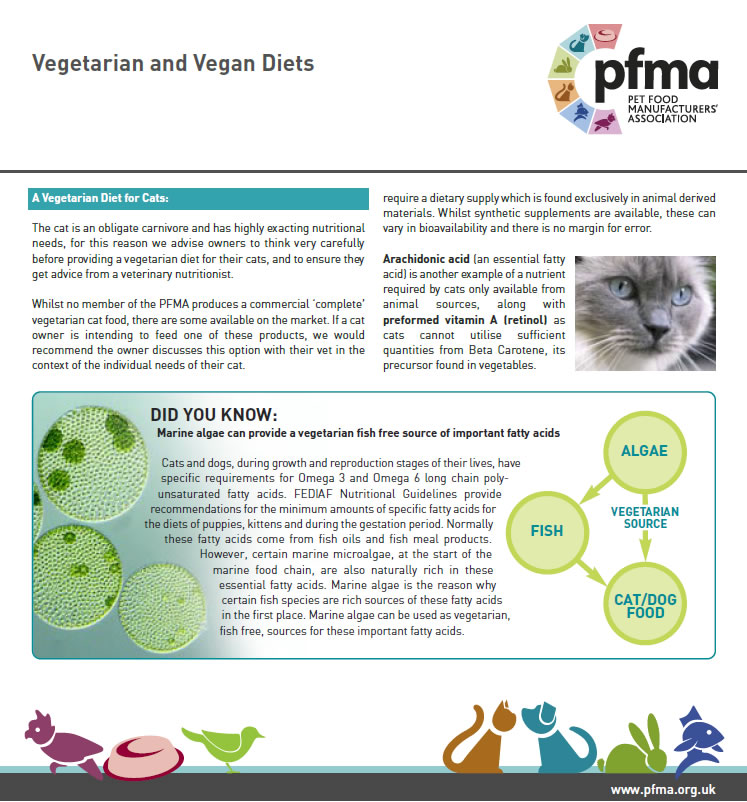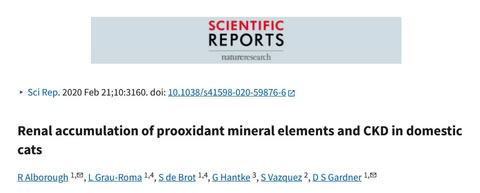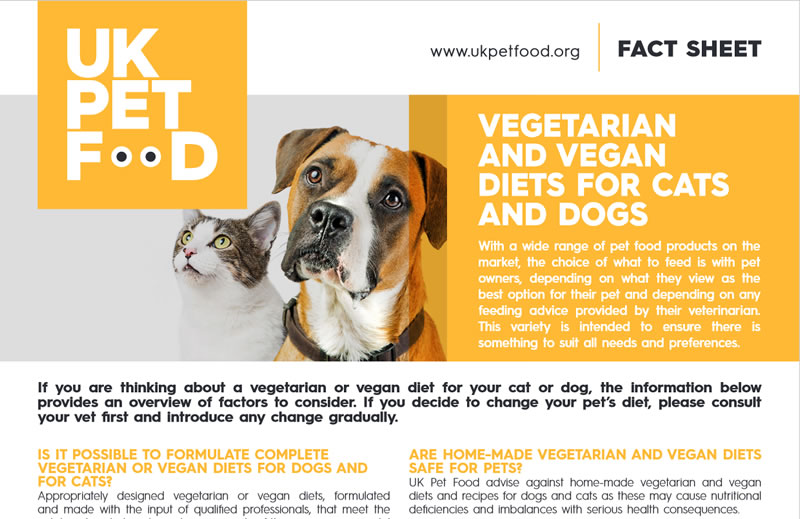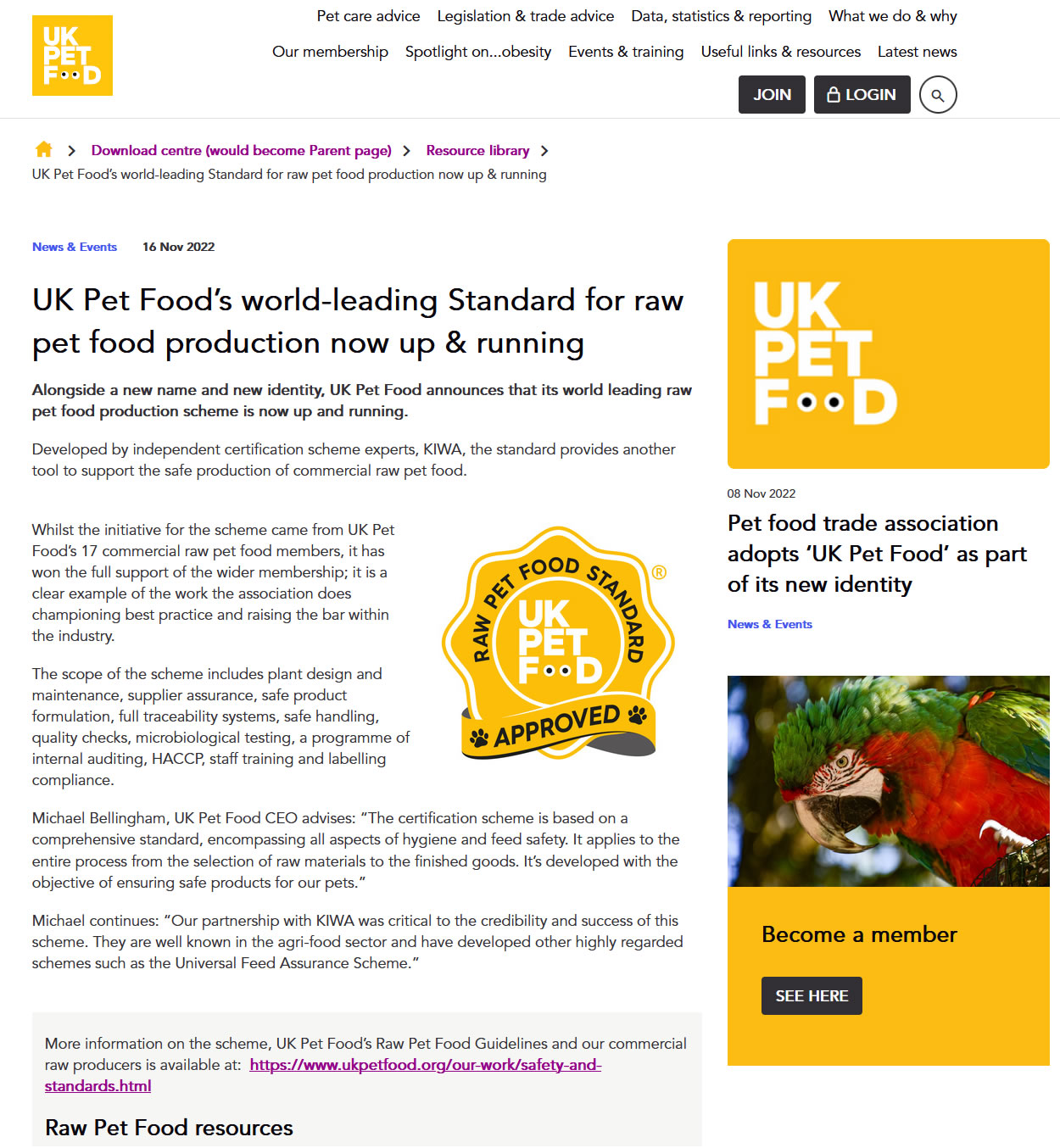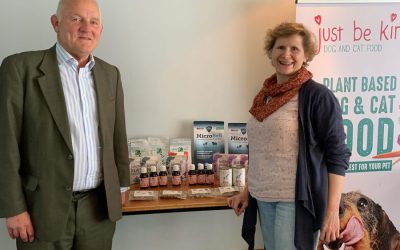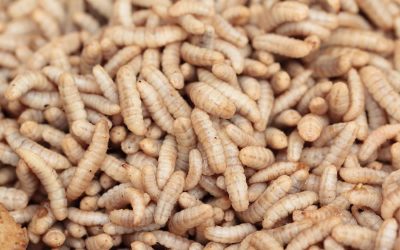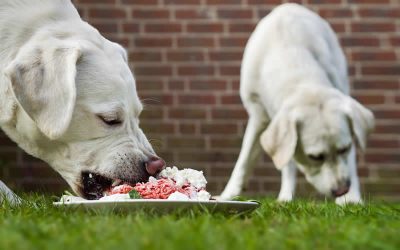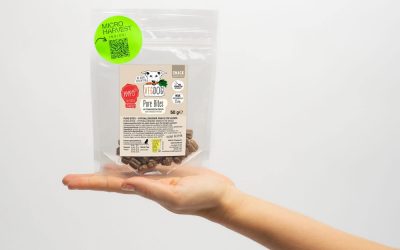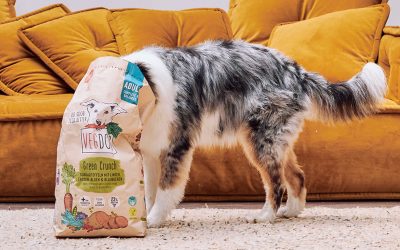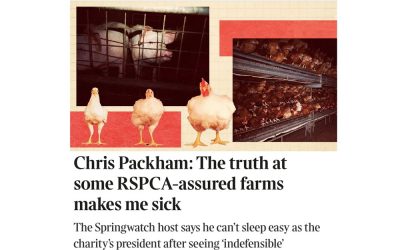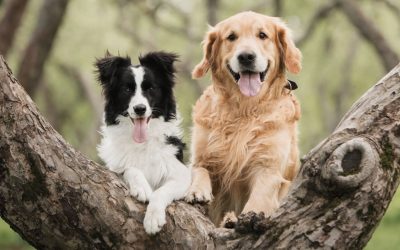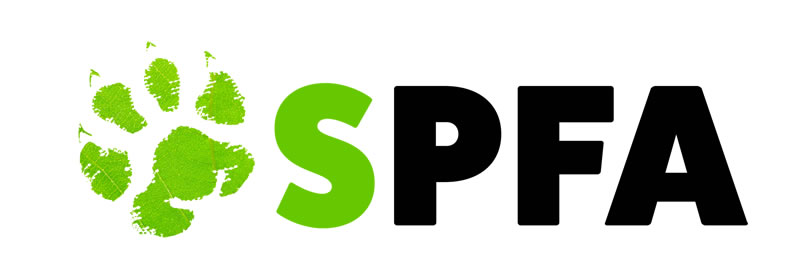Is UK Petfoods keeping up to date with what is being said about sustainability and pet foods?
As vets, we have to take note of what is being said by UK Petfoods, and it is important to question their advice with something as crucial as sustainability that affects our climate crisis and our future.
UK PetFoods and the BVA advice on feeding dogs (in the only article linked on their page about sustainability but dated Nov 2024) justify the use of all meat and fish-based byproducts in pet food stating that if we did not use the scraps of the meat and fish industry, then it would go to waste, so it is sustainable to use these animal byproducts in pet food.
Two very contradictory reports aimed at vets happened in the very same week in September 2025.
Firstly UK PetFoods held a Webinar entitled – ‘Pet Food Trends and Sustainability‘ organised by Webinar Vet .
This Webinar was very biased towards meat-based pet food companies and started by saying that meat and animal byproducts was a viable addition to pet food as it was cheap and dogs and cats liked it!
I had hoped that the fact the Webinar was entitled ‘Pet Food Trends and Sustainability’ and that Tails.com had sponsored the Webinar, that it would mention the very dangerous ‘trend’ of feeding our pets a raw food diet; but it was quite the opposite!
UK Petfoods explained how sustainable it was to use the byproducts of the meat-based and fish-based industry as these would otherwise go to waste!! They even have a handout on their website stating this fact and justifying the use of meat-based ingredients as shown below.
Which studies directly contradict ALL the advice that UKPetfoods are giving about Pet Food Sustainability?
In the very same week as the Webinar telling us that it is sustainable to use the byproducts of the animal agriculture industry, we had a published paper from the University of Nottingham study examined 31 dry dog foods across five categories: plant-based, poultry-based, beef-based, lamb-based and veterinary renal diets.
Researchers found that plant-based options consistently required fewer resources and produced lower emissions across ALL measured environmental metrics.
“Plant-based diets had the lowest impact across ALL measures of environmental impact,” the study reported. “Beef-based foods generated 7.1-fold higher acidifying emissions and 16.4-fold higher eutrophying emissions, compared to plant-based foods.”
Calculating canine lifetime environmental impacts
The researchers calculated lifetime environmental impacts for a typical 20kg Labrador over nine years. The analysis showed feeding exclusively plant-based food would require the equivalent to about 1.4 football fields. In contrast, beef-based diets would demand roughly 52 football fields worth of land!
Poultry-based and veterinary diets fell between these but remained substantially more resource-intensive than plant-based alternatives. Lamb-based foods showed the highest environmental impact, requiring the most land over the dog’s lifetime.
Read full report here Brociek et al September 2025
Which study independent of any pet food companies from May 2025 mirrors these results from Nottingham Vet School?
This latest research disputes the facts raised by UK Petfoods and the BVA that the use of animal byproducts in pet food has a low impact because it is mainly made from animal byproducts.
This study from May 2025 (Nicholles et al) also claims that a financial value is put on the byproducts for the pet food industry as just 25% of animal byproducts are used in pet food, and the sector COMPETES with big pharma and even biofuel to access these ingredients (yes you read that correctly, as the price of animal fat has soared due to its use in making renewable diesel – pigs may fly!!!)
Why are UK Petfoods not keeping up with the latest science?
UK PetFoods have underplayed the importance of replacing the animal byproducts used in pet food with more sustainable options and they held a Webinar with a topic as important as – ‘Pet Food Trends and Sustainability‘ at a time where we are facing a global climate crisis that needs addressing urgently and absolutely should NOT be viewing anything that protects our planet’s future as a ‘trend’.
UK Petfoods is a privately run business and they receive their funding from their ‘shareholders’ or members, and 98% of them are the very big corporate meat-based or raw food companies!
See a full list of their member’s directory including Mars Petcare, Nestle Purina, Hills, Tails.com, and a multitude of raw food companies. Interestingly, the only large pet food corporate that is a member of UK Petfoods and does have their own sustainable plant-based dog food options; is Pets At Home with their plant-based Wainwright’s dog food.
They have to defend their majority pet food members. There is an enormous amount of money to be made from the byproducts of a very heavily subsidised meat and fish-based industry, but if it comes at the cost of our planet, then we have to expose this in an industry where there is so much at stake.
Knowing the impact that overfishing and the overuse of animal byproducts in pet foods is having in escalating global warming is quite terrifying for our future.
When did UK Petfoods stop supporting sustainable plant-based pet food options?
UK Petfoods used to be called the PFMA, and in 2020, this is what was available on the PFMA website.
These facts were then translated into a new factsheet when PFMA became UK Petfoods and underwent a full rebrand in November 2022.
Click on the link below, or here showing the factsheet updated for the new website when UK Petfoods underwent their rebrand in 2022 – they carried over the important facts about the use of Taurine in all cat foods, the importance of being able to replace fish with highly sustainable Algae, and the availability of a fungus to replace Arachidonic Acid that cats need in their diet that comes from a plant-based source.
Statements in the original factsheet included: “Appropriately designed vegetarian or vegan diets, formulated and made with the input of qualified professionals, that meet the nutritional and physiological requirements of the species, are a valid part of the product portfolio for today’s pet food industry.”
They go on to describe non-animal sources of key nutrients including Taurine (synthetic) and Omega 3 and 6 fatty acids (marine algae), etc. This represents a very positive change for the UK pet food industry…..HOWEVER…
UK Petfoods then took this information down just a few months later, replacing it with the current set of factsheets about sustainable alternatives that this time, fails to mention anything about Taurine being used in ALL cat foods, it fails to mention anything about Arachidonic Acid options, and it fails to mention the highly innovative alternative to overfishing, which is the use of pure sustainably sourced Algae oil from one species of Microalgae to replace fish in ALL pet foods!
We SHOULD be replacing fish in all pet foods with microalgae with immediate effect as we have to save our oceans.
Cats and dogs are both land mammals and neither should be fed a diet containing fish at all as it a known allergen in both dogs and especially cats, and all fish-based cat food carries a risk of Arsenic and Mercury affecting the kidneys of cats as shown below.
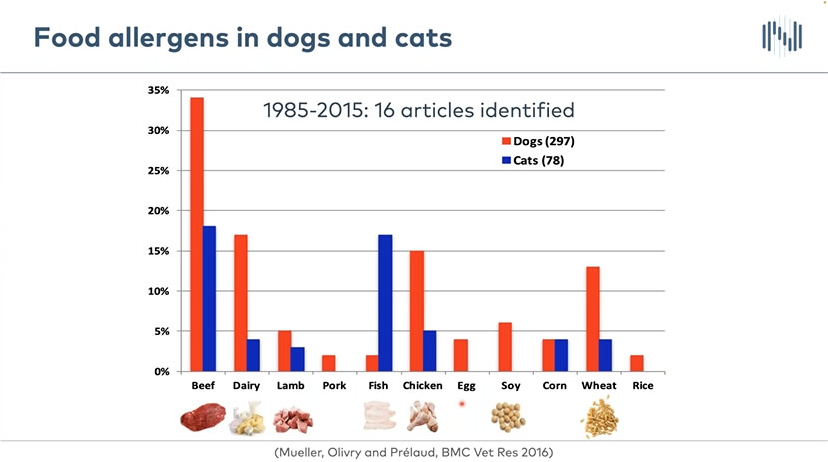
Click on the image below to see the current factsheet that is hidden on the UK Petfoods site (it used to be in the dropdown but is now very difficult to locate), that
- Fails to mention the use of Taurine that is safely added to ALL cat foods
- Fails to mention that there is a sustainable alternative to Arachidonic Acid that cats need from a fungus
- Fails to mention the very important use of microalgae to replace ALL fish and fish oils in pet foods which should be happening immediately to protect our vulnerable oceans
In 2022 when UK Petfoods underwent their rebrand, was the time that raw food companies around the UK were seeing a huge surge in investment and they needed to market themselves fully, so having UK Petfoods declare a ‘Rawsafe’ stamp for all of these companies since November 2022, has allowed the surge in the sales of even more meat-byproducts and they could include all these raw feed companies in their member’s list.
I have saved a screenshot of this page on their website from November 2022 when they declared that raw feeding was safe, where Michael Bellingham goes so far as to say –
Michael Bellingham, UK Pet Food CEO advises: “The certification scheme is based on a comprehensive standard, encompassing all aspects of hygiene and feed safety. It applies to the entire process from the selection of raw materials to the finished goods. It’s developed with the objective of ensuring safe products for our pets.”
These are such dangerous statements for our pets’ health should there be an outbreak of pet deaths from raw feeding as happens in the US, or even far worse, a future pandemic from microbial resistance from the promotion of raw feeding of our pets in our family homes.
Article below from vet nutritional specialist Dr Mike Davies, published in the Vet Times in January 2023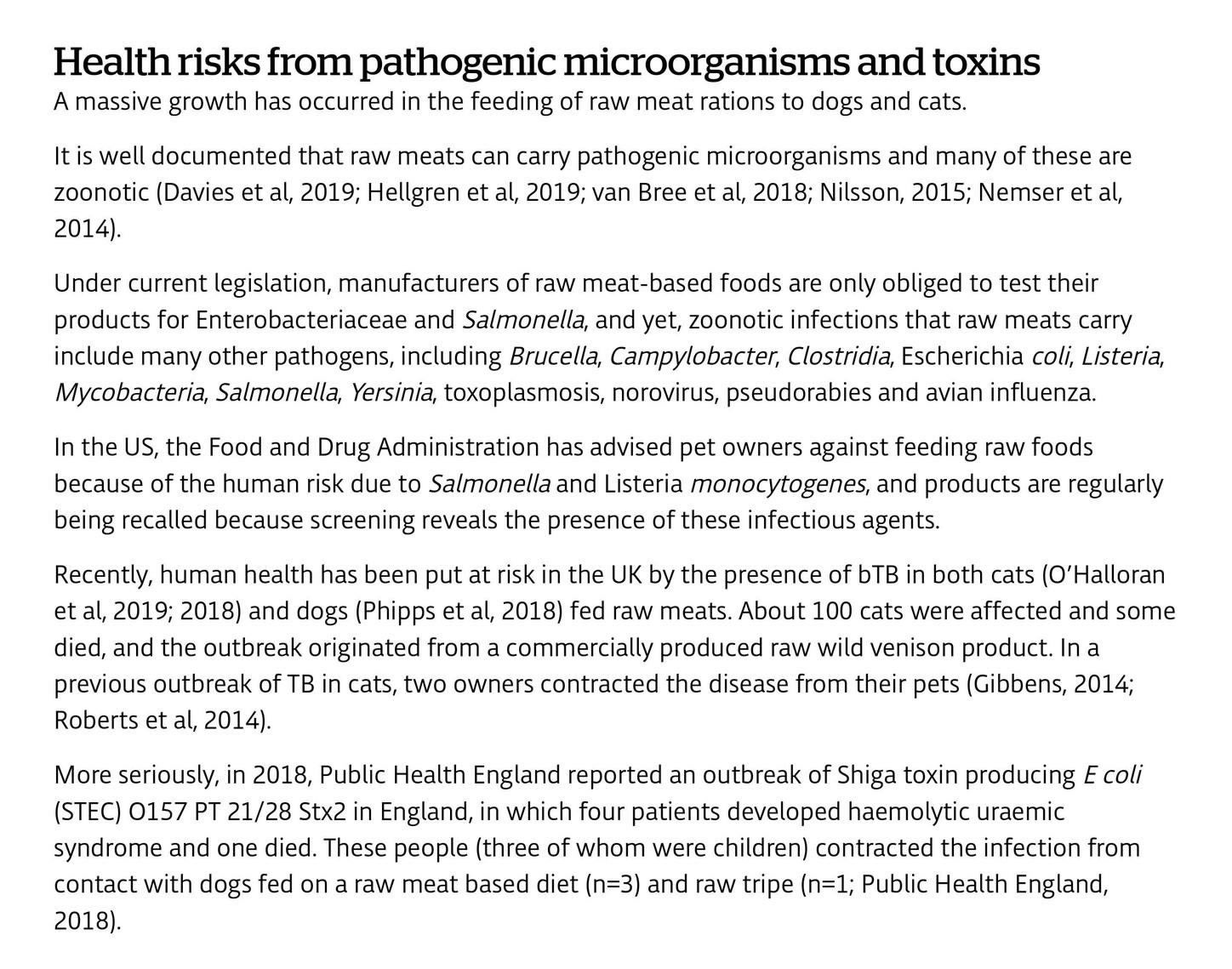
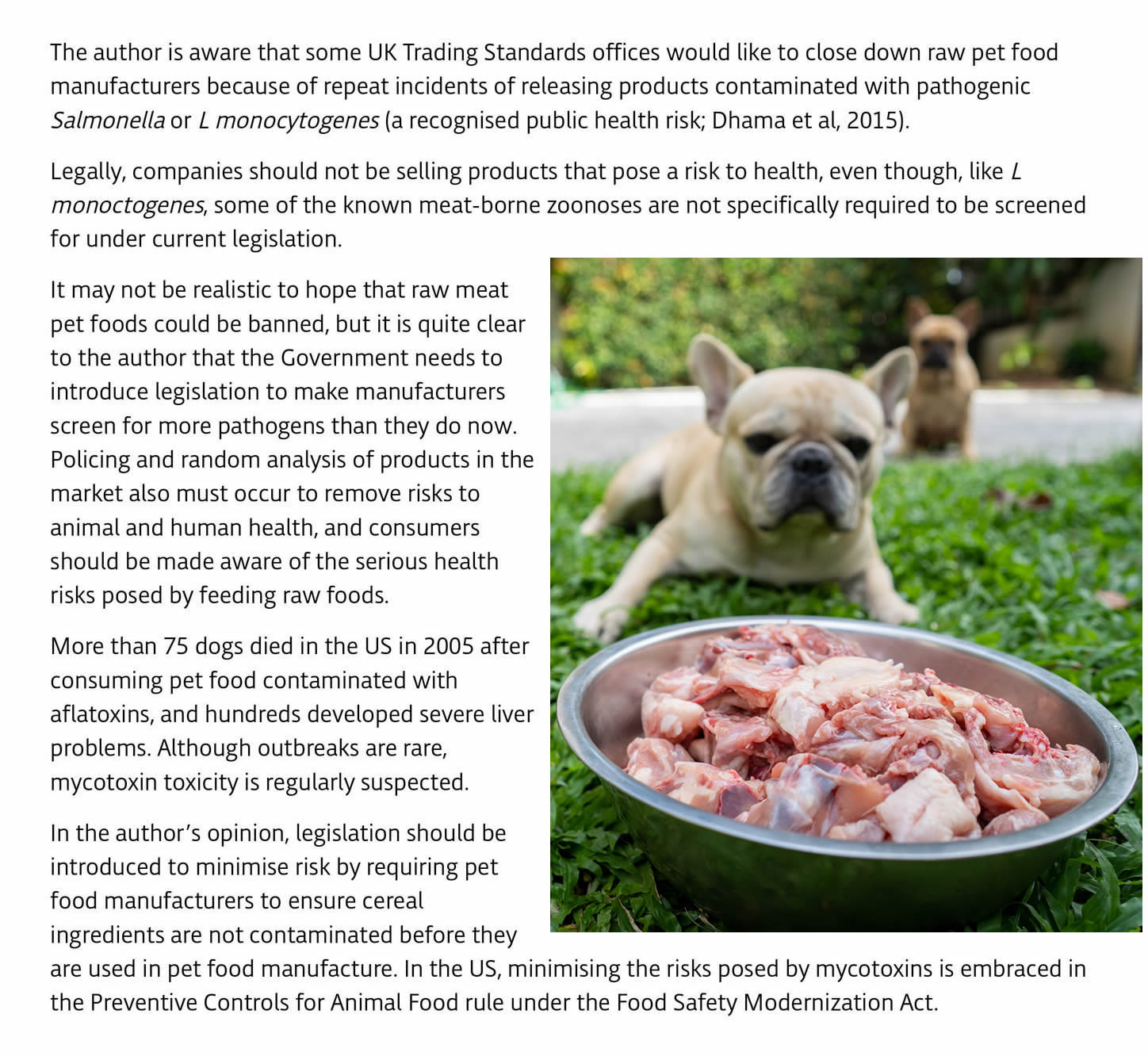
Knowing that UK Petfoods has NO veterinary input at all with its owners, this has proven to be a very dangerous move for our planet’s health with the concern of antimicrobial resistance in dogs and in cats (October 2025) and for the health of our pets as we have 85 (!) published studies showing the dangers of feeding raw food to our pets and not ONE positive study showing benefits!
We have a very informative video below by medicine Specialist Dr Rob Foale below explaining about the dangers of raw feeding.
Studies claim positivity with alternative pet diets
Many owners willing to consider alternative pet diets, studies claim with a high proportion of cat and dog owners now prepared to explore alternative, more sustainable diet options
Plant-based vs Insect-based dog food
Insect Protein-Based Diets as Potential Risk of Allergy in Dogs, and Higher Cost
Avian Flu Pandemic Risk from Raw Feeding
The APHA (Animal Plant and Health Agency.gov.uk) sends anyone interested in environmental matters, emails about looming threats. As a vet, this is what I have received recently in my email inbox - In my inbox yesterday 11th November - An Avian Influenza Prevention...
Raw dog and cat food fuelling spread of antibiotic-resistant bacteria
The very real and always present danger of this latest study yet again finding antibiotic-resistant bacteria in raw commercial cat foods!
Cats dying after eating Avian-Influenza-contaminated raw pet food!
Does vegan cat food provide the solution?
Fermented Protein Pet Food – the Future?
Is precision fermentation our future way to feed not only our pets, but ourselves too? Yes it most certainly is!
Could our dogs or cats trigger an avian influenza pandemic?
As our memories of the last COVID 19 disappear, the potential for another pandemic looms and pets could play a role in transmitting it
Using microbial protein for the very first time in dog treats!
This first-of-its-kind protein is derived from bacteria that have been consumed by humans for centuries in foods such as kimchi, kefir, and sauerkraut
BVA says it is possible to feed dogs plant-based
The British Veterinary Association (BVA) has ended its opposition to (nutritionally-sound) vegan diets for dogs
The truth about ‘RSPCA Assured’ farms
The footage obtained from these farms, including distressing images of decomposing pigs, dying chicks, and salmon with missing eyes, is simply indefensible
The Great Protein Debate – Beef or Beans?
Dr Sue Paterson, RCVS President and Senior Vice President of the European Society of Veterinary Dermatologists interviews Dr Arielle Griffiths about Sustainable Pet Foods
University of Liverpool Vegan Dog Food Study
Prof Alex German holds the position of Royal Canin Professor of Small Animal Medicine at the University of Liverpool
Recommended sustainable pet foods
